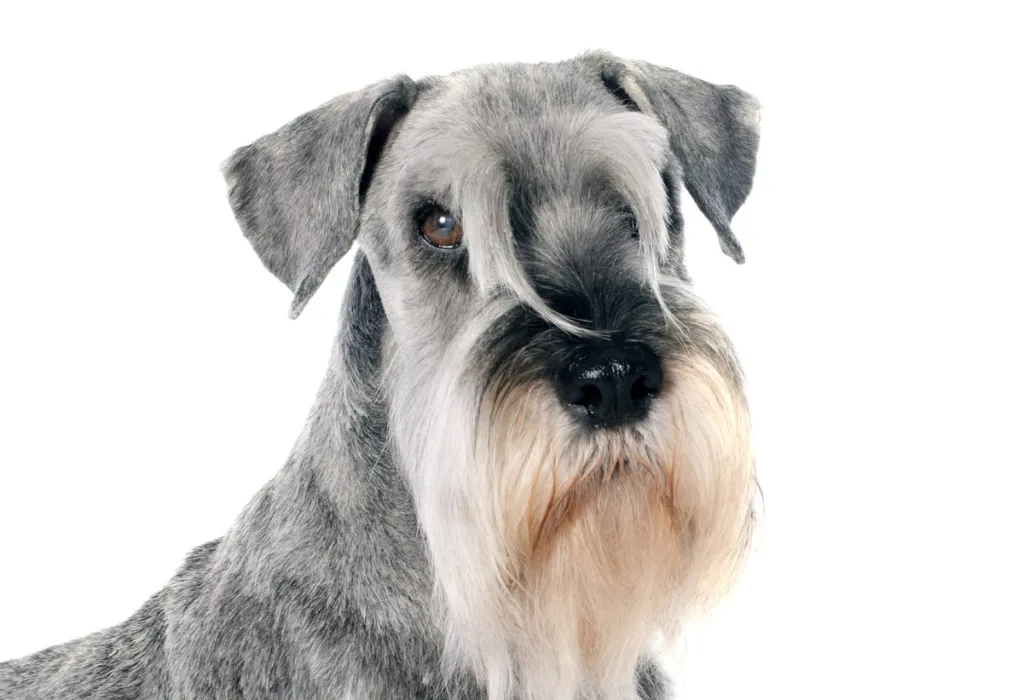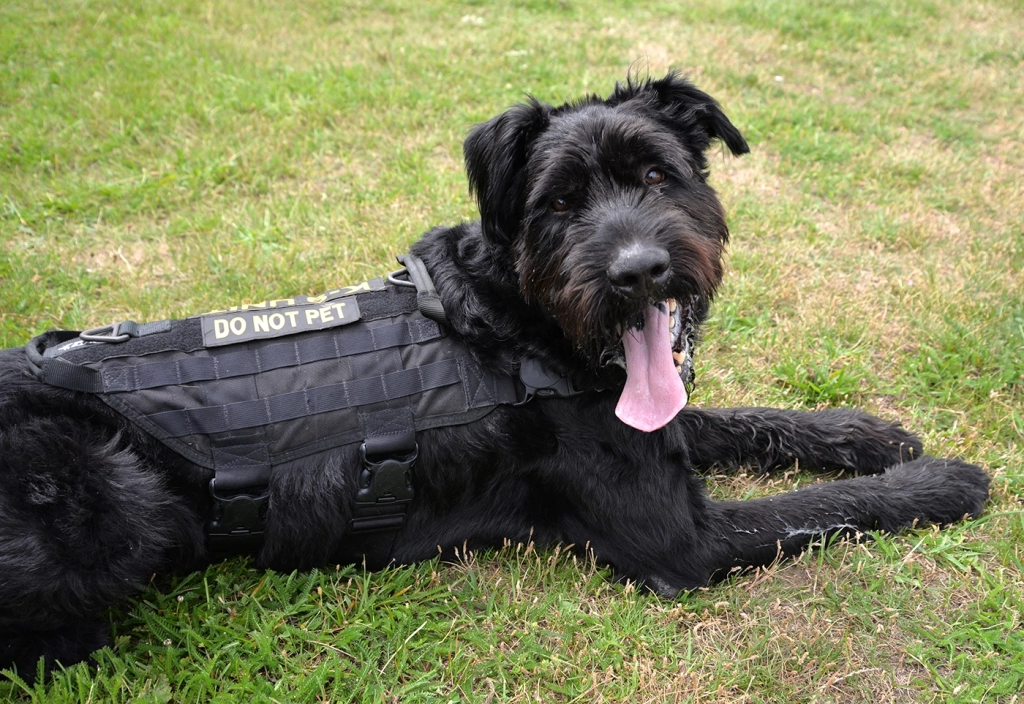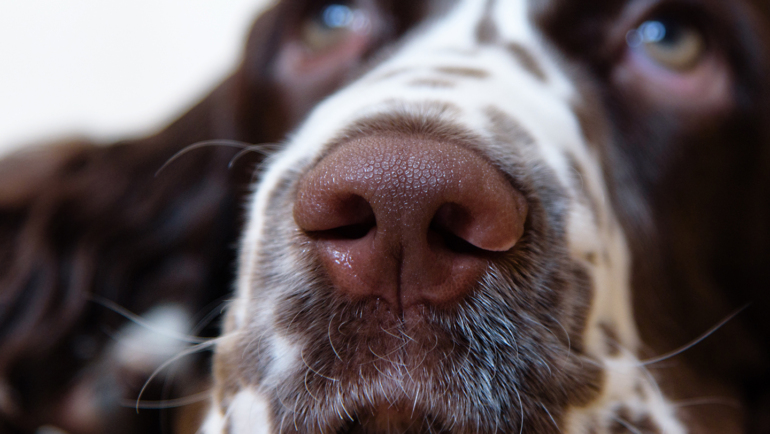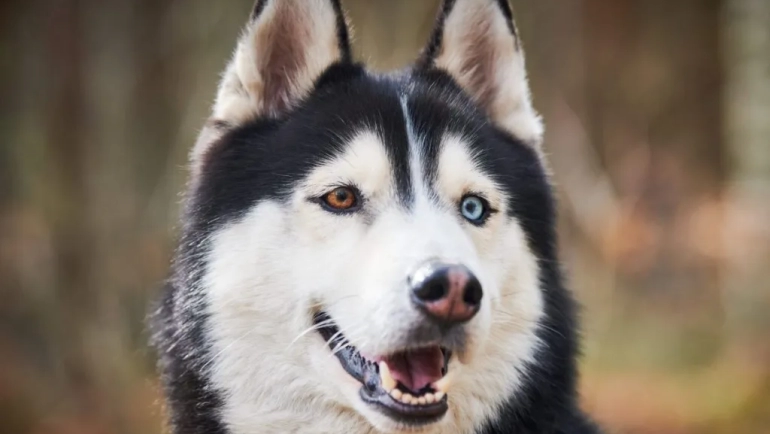125Views

The Schnauzer Dog: A Complete Breed Guide
The Schnauzer, with their distinct eyebrows and perpetually surprised expression, is more than just a canine caricature.
These feisty furballs pack a punch of personality, intelligence, and unwavering loyalty, making them cherished companions for families and individuals alike.
Dive into the world of Schnauzers and discover why these mustachioed marvels might just be the perfect pup for you.
Schnauzer Sizzle: A Breed Breakdown
There’s not just one Schnauzer, but three! Each boasting their own unique charm:
- Giant Schnauzer: The gentle giant, standing tall and proud, is a loyal protector with a heart of gold. Think of them as a cuddly bodyguard wrapped in a shaggy coat.
- Standard Schnauzer: The middle child, energetic and playful, thrives on adventure and keeping their humans on their toes. Think of them as your personal jester, always ready for a game of fetch or a romp in the park.
- Miniature Schnauzer: The pint-sized powerhouse, brimming with personality and sass. Don’t let their size fool you; these tiny titans are big on love, loyalty, and independent spirit. Think of them as a pocket-sized shadow, always by your side.
Unmasking the Schnauzer Personality
Schnauzers are renowned for their intelligence, ranking high on canine IQ scales. They’re eager to please and quick learners, making training a breeze (most of the time!).
Their playful nature shines through with their love for games, toys, and anything that involves a good belly rub.
But don’t be fooled by their goofy antics; Schnauzers are also fiercely loyal and protective, making them excellent watchdogs who will alert you to any suspicious activity (squirrel crossing the street, anyone?).
Read Also: Cane Corso: All What You Need To Know
Living with a Schnauzer: A Tailored Guide
Sharing your life with a Schnauzer requires dedication and understanding their specific needs. Here’s a glimpse into Schnauzer life:
- Exercise: These energetic pups need daily walks, playtime, and mental stimulation to stay happy and healthy. Think agility courses, puzzle toys, or even learning some tricks!
- Grooming: Their iconic wiry coat requires regular brushing and professional grooming to prevent matting and maintain that distinguished Schnauzer look.
- Training: Positive reinforcement training is key to harnessing their intelligence and playful spirit. Early socialization is also crucial to ensure a well-adjusted pup who’s comfortable in various situations.
Schnauzer Superpowers

Schnauzers aren’t just adorable companions; they excel in various roles:
- Therapy Dogs: Their gentle nature and eagerness to please make them excellent therapy animals, bringing comfort and joy to those in need.
- Service Dogs: Their intelligence and trainability allow them to assist individuals with disabilities, providing invaluable support and independence.
- Herding Dogs: Their natural instincts and agility make them skilled herding dogs, particularly suited for smaller livestock like sheep or goats.
Is a Schnauzer Right for You?
If you’re looking for a dog who is:
- Intelligent and eager to learn
- Playful and energetic
- Fiercely loyal and protective
- Adaptable to various living situations
Then a Schnauzer might just be your perfect match! Remember, adopting a dog is a lifelong commitment, so ensure you can provide the love, attention, and exercise they need to thrive.
Are Schnauzers High maintenance Dogs?
While Schnauzers possess some traits that contribute to higher maintenance, it’s crucial to avoid a definitive label like “high maintenance.” Their requirements depend on several factors, including size, individual personality, and your lifestyle. Here’s a breakdown:
Areas where Schnauzers require more attention:
- Grooming: Their wiry coat demands regular brushing (ideally daily) to prevent matting and professional grooming every 6-8 weeks for trimming and shaping.
- Exercise: Schnauzers, especially Standard and Giant varieties, have high energy levels. Daily walks, playtime, and mental stimulation are essential for their physical and mental wellbeing.
- Training: Though intelligent and eager to please, their independent streak might require consistent and positive reinforcement training.
Areas where Schnauzers are relatively low maintenance:
- Shedding: Schnauzers are known for minimal shedding, making them a good choice for allergy sufferers.
- Health: While breed-specific conditions exist, they are generally healthy dogs with proper care and regular vet checkups.
- Adaptability: They can adjust to various living situations, from apartments to houses with yards, provided their exercise needs are met.
Ultimately, “high maintenance” is subjective. If you’re comfortable with regular grooming, dedicated exercise time, and consistent training, a Schnauzer can be a fantastic companion. However, if you prefer a lower-maintenance lifestyle, other breeds might be a better fit.
Consider these factors to decide if a Schnauzer is right for you:
- Your schedule: Can you dedicate time for daily brushing, grooming appointments, and exercise?
- Your lifestyle: Are you active and enjoy playtime with your dog? Can you accommodate their energy levels?
- Your experience: Are you comfortable training dogs and establishing consistent boundaries?
Do Schnauzer Dogs Bark?
Yes, Schnauzer dogs are known for being vocal and frequently bark. Several factors contribute to this tendency:
Breed History:
- Originally bred as farm guardians and ratters, Schnauzers developed an instinct to alert their owners to potential dangers with barking. This alert nature remains ingrained in modern Schnauzers.
High Energy Levels:
- Particularly Standard and Giant Schnauzers, being high-energy dogs, may express themselves vocally through barking when they feel bored, frustrated, or need attention.
Intelligence and Communication:
- Schnauzers are smart and eager to please. They might bark to communicate their needs, such as wanting to go outside, play, or interact with you.
Individual Personality:
- Like any dog, each Schnauzer has a unique personality. Some might be naturally more vocal than others, and external factors like environment and training can influence their barking behavior.
Addressing Schnauzer Barking:
While barking is a natural Schnauzer trait, excessive barking can become a nuisance. Here are some tips to manage it:
- Identify the Trigger: Observe and understand what prompts your Schnauzer to bark. Is it boredom, separation anxiety, or seeking attention?
- Positive Reinforcement Training: Reward calm and quiet behavior, ignoring unwanted barking. Consistent training with treats and praise helps them understand desired behavior.
- Provide Adequate Exercise: Ensure your Schnauzer gets their physical and mental stimulation needs met through walks, playtime, and training. A tired dog is a less vocal dog.
- Desensitize and Countercondition: If barking is triggered by specific stimuli, gradually expose them in controlled environments and reward calmness.
- Seek Professional Help: If you struggle to manage excessive barking, consult a certified dog trainer or behaviorist for personalized guidance.


